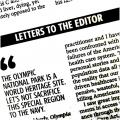
NO MATTER how we look at the state of the NHS, we all agree we need it. But we don’t want to be there as a patient, but when in need we are so glad it is there.
Much like any business it has its slack days and its busy days. Christmas time, when the days can be so autumnal, one day warm, cold another day, both even on the same day.
Chills, colds and flu are more prevalent at this time of the year. Children going to school pick up and pass on all off these infections and more, with grandparents being the more vulnerable to catching them.
Then with Christmas shopping, and the festive seasonal parties, we gather together and spread our infections onto each other.
Planes,trains, any form of public transport is the best way of catching most infections.
The result is doctors’ surgeries become inundated with patients needing treatment, which in turn overflows into A&E, much like last Christmas when I found myself suffering breathing problems.
I found myself joining the ever-increasing caravan of ambulance stretcher trolleys, stacked up in the corridors of the Royal Sussex Hospital’s A&E department.
And with the usual drunks, druggies and genuine accident cases, there were also many like myself struggling with respiratory problems.
Until these ambulance personnel have passed you over to the doctors, they cannot leave which means a shortage of ambulances and yes, I did have my flu jab.
The NHS Christmas rush extends into the three winter months.
Each year has a different situation but still gives our NHS many problems to resolve.
Each year seems worse than the year before, and with this city’s population expanding like it is, this has become a trend, more than a blip.
The influx of students into the city has brought many overcrowding problems with it.
And as both universities grow bigger with more student accommodation being built, this will again place more pressure onto this city’s infrastructure.
As we see how inadequate our city council is when it comes to meeting the demands of its residents’ everyday living needs, they are always trying to find sticky plaster remedies to patch over their lacklustre attempts to tackle these problems properly.
Parking at all our hospitals no matter what part of the country they are situated in, find parking a big bone of contention. Either for its staff or people dropping of patients, it is so inadequate for them to be able to park.
No matter how good our bus services are, there will always be a need for people to use their cars.
So, with the new extension of The Royal Sussex well into completion, what has been designated for our hospital parking? Or is this another case of wait and see what happens first?
As there seems to be no forward planning, it seems to be a case of “let’s wait to see what mess we have to overcome when it happens”.
Or is the answer for the parking to be allowed to be soaked up by local street parking where local residents have been overcharged already for their parking permits.
Spencer Carvil, Egginton Road, Moulsecoomb



Comments: Our rules
We want our comments to be a lively and valuable part of our community - a place where readers can debate and engage with the most important local issues. The ability to comment on our stories is a privilege, not a right, however, and that privilege may be withdrawn if it is abused or misused.
Please report any comments that break our rules.
Read the rules hereLast Updated:
Report this comment Cancel